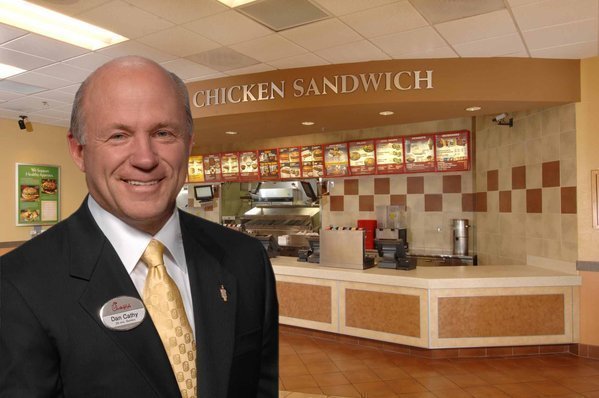Another Control Your Cash® patented one-sided conservation question, one-sided since we don’t bog our site down by allowing comments. So you’ll have to answer in the comfort of wherever you’re reading this (home, maybe an airport, hopefully the office – the last of which we’ll elaborate on in a second.) The following question is not, repeat, not, rhetorical:
All things being equal, to the extent that they can be, would you be more or less inclined to work for a company whose official policy includes some variation of the following declaration?:
Employees are our most valuable asset(s).
If you answered ‘More’, there’s lots to unlearn.
“Employees are our most valuable assets.” Think about what that means. The company is profiting off them more than it is off the net receivables, or the cash and cash equivalents, or the property, plant and equipment, or any of the other assets that are supposed to stimulate cash flow and enrich the owners. $45,000 in inventories, if sold at a 100% markup, and subtracting a few dollars for warehousing costs, might realize a profit of $40,000. Meanwhile $45,000 paid to you, the deputy assistant regional manager, might realize a profit of $50,000 if you move enough product and work enough uncompensated overtime to impress the assistant regional manager: the guy whose job you claim you want to have one day.
Any company that tells you that you’re among its most valuable assets and expects you to take it seriously is patronizing you. The kind of employees who are dumb enough to swoon from and find validation in a timeworn line specifically written to make them feel that way are, self-fulfillingly, indeed pretty valuable assets. Because if being told you’re important makes a difference to you, you’re probably underpaid. Because you think you can eat non-monetary, psychological rewards such as compliments.
You negotiate in plenty of other aspects of your life, right? If you comparison shop, then you’re negotiating, kind of. You certainly wouldn’t buy something expensive like a car or a house without looking around and trying to get the seller to come down as much as is prudent. Well, what kind of lunatic determines which supermarket sells the cheapest per-unit laundry detergent, and maybe even uses a coupon, but doesn’t care how many tens of thousands of dollars her employer is making off her? (And then try to whittle that number down a little?)
Your value to your company is measurable. Of that value, or of the revenue that derives from having you around, you keep some and the rest goes to your employer. This is so obvious that it’s easy to miss, yet almost everyone does. Employees think that a salary is a product of an initial round of mediation held during an interview. Some think it’s even less complicated than that, and that a salary is simply what the employer deigns to pay you. It isn’t. Once again, it’s the difference between what you bring in and how much of that the employer decides to pocket. Even Karl Marx understood this, and Marx was one of the most overrated thinkers of all time. (Come to think of it, this was about the only thing he understood.)
Finally, as investors we could give a damn about any company that claims that its employees are #1. Your customers should come first. Well, your investors should come first, but that usually implies having customers. Satisfied ones, repeat ones, as many as possible. Brinker International, parent company of Chili’s, generated $2.82 billion in revenue last year. You know what its “most valuable assets” are? Hint: Not the flair-wearing hostesses and servers, thanks.
The beer kegs. Each one contains about 140 pints, which the restaurants can sell for 3 or 4 times what they paid. Few employees offer that kind of return, and if they could, they’d be crazy not to demand far more money. Beer kegs can’t negotiate. Nor can the soda fountains, which offer an even greater profit margin, albeit on smaller volume.
It’s like politicians who say “children are our most valuable resource”, a proverb which was cloying if inaccurate back when people started saying it in the 1970s, and which should only incur scorn today.
From an employee’s perspective, you want the profit margin on you to be as low as possible. Not so low that it costs money to keep you around – in which case the sensible thing to do is fire you – but low enough that you’re earning a lot relative to your value.
Every commodity – beer, soda, cigarettes, labor – has a markup. People think that the last one shouldn’t be on the list for some reason, or that jobs can’t be quantified and subjected to cost-benefit analysis the same way that non-human assets can. But of course they can. No employee has ever been fired because he made too little money. In fact, the opposite is true. Employees who make “too little” (which, obviously, management would never cop to) are instead held up as emblematic of something larger: the “valuable assets” worthy of mention in the company mission statement. Or vision statement, whichever. Meanwhile, every hour of every day some employees somewhere get fired because management can no longer justify their salaries. Short of stealing company secrets or having sex on the photocopier, overpayment is the #1 reason for being let go.
With the possible exception of pack animals, no asset was ever more valuable than a slave. You got your cotton picked, you got musical entertainment, and you didn’t even have to pay a living wage.






